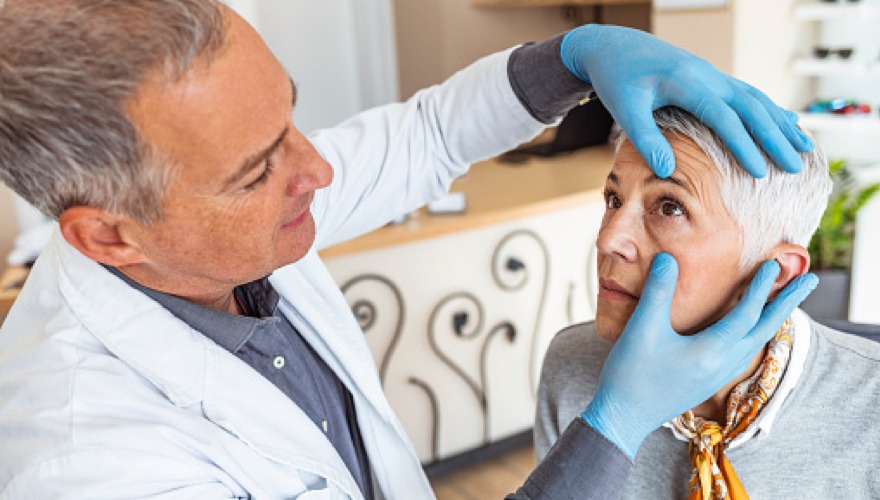Your vision changes as you age, but that doesn’t mean you have to lose your sight as you get older. Effective eyesight preventive care can mitigate vision loss in later life. Find out the steps you should be taking from the eye care experts at Wills Eye Physicians Bailey Weber Wisner.
Can You Stop Your Vision Changing?
We all change and age, and eventually your vision will change too. It is simply part of the natural process. However, like with many changes that happen to our bodies as they age, taking care of your body before the change happens can mitigate or even completely negate it. Taking good care of your eyes can help you avoid vision loss later down the road and help you avoid surgeries. Consistent eye protection, diet and regular medical check-ups can help you secure your eyes’ future.
How Can I Protect My Eyes?
Just like with your skin, too much exposure to sunlight – particularly high UV light – can speed up the natural aging process. Conditions like cataracts occur due to the eye’s exposure to light over time, so taking the proper precautions to protect your eyes can be an important step to mitigating or preventing vision problems in later life. Try keeping an eye on the UV index, the same way you might with your skin, and wear polarized sunglasses and a wide-brimmed hat on days where the sun is particularly strong or bright.
How Can Diet and Lifestyle Help Prevent Vision Problems?
In many ways, eye health is tied to your overall health. Habits that can improve your general health will also help mitigate vision problems with age. Quitting smoking or cutting down on cigarette and vape usage can help you avoid conditions like macular degeneration and offset cataracts. Embracing a healthier diet can also help lessen the severity of age-based eye issues. There is evidence that a healthy, Mediterranean-style diet with regular servings of fish, leafy green vegetables and brightly colored fruits reduces the risk of developing macular degeneration and slows down the rate of cataract formation. There are plenty of vitamins advertised for eye health, but at this point, over-the-counter vitamins and supplements have only been proven to be effective for people with macular degeneration and there is no evidence that they are helpful for people without eye disease.
What Steps Can I Take with My Eye Care Professional?
Like many age-related illnesses, the earlier you catch vision problems, the better your chances of negating them. You should aim to have regular vision checkups, at least once every two years, particularly as you get older. These checkups will help your doctor identify vision problems early on and help you get the proper preventive treatment. When caught early, most eye issues can be resolved before vision loss starts – and so you can have good vision well into your nineties and even past the age of 100. With regular vision appointments, your doctor can also help you understand what lifestyle and preventive choices you should take and how your eyes are currently being affected, which can help keep your eyes healthy for a long time.
